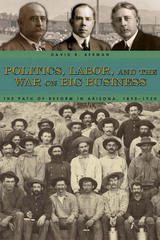
In the past decade remarkable changes have taken place in the relations between big business and government in Western Europe. Large corporations have always been intimately linked to their governments—sometimes carrying out national policies, frequently influencing those policies. Recently, however, more and more national enterprises have become multinational enterprises whose aims diverge increasingly from those of the states in which they originated. In addition, the growth of the European Economic Community has outdated customary ways of doing business for large corporations while creating new opportunities for them.
A number of significant insights and interpretations result from this timely book. The interests of the big firms of Western Europe are becoming increasingly worldwide and less concerned with Europe; inter-European collaboration among them has been largely disappointing in furthering European goals; emphasis on creativity and innovation in big business has given way to the diversion of financial resources to declining industries; and lip service to promoting transnational collaboration notwithstanding, governments have preferred to back national standard bearers in key industries. No less important, the political role of large economic groups has been enhanced and that of parliament weakened or altogether circumvented.

Inequality, per se, has been with us for millennia. With the creation, growth and deepening of Capitalism across the globe, inequalities take on new dimensions, unknown in previous eras. As Capitalism has spread its wings across the globe over the last 200 or so years, so inequalities have deepened and widened, both inside Nation Sates, between nation States. These inequalities are of income, wealth and of power.
This book, written by the widely respected economic historian Douglas Dowd at the age of 90, is notable for his own experience and vivid memory, of the 1929-31 recession. Since the 1980s, and the predominance of the present neo-liberal ideology, all of the inequalities that the book presents have grown rapidly. Written as a critique of the counter-productivity of growing economic inequality and vindicated by the present world banking crisis, Dowd presents a strong argument against capitalist expansion, exploitation and oligarchic rule.
Dowd's conclusions, that the globalization and growth of the financial sector will impact painfully upon hundreds of millions of people, unknown to most of us in our lifetime, Dowd's book deals with these issues from the unique perspective of inequality. Presenting both a history of the current crisis and an overview of it's, Inequality will appeal to both a broad general readership, and provides an extremely useful reference point for students of political economy, economic history, contemporary economics and global politics.


The concept of the “visible hand” in big business enterprise, so persuasively and brilliantly argued in Alfred D. Chandler, Jr.’s prize-winning The Visible Hand: The Managerial Revolution in American Business, is tested and extended in this book. These essays show that the growth and complexity of managerial hierarchies (“visible hands”) in large business firms are central to the organization of modern industrial activity. Leading American and European historians retrace and compare the historical evolution of the contemporary giant managerial hierarchies in the United States, Britain, Germany, and France.
The first group of essays—by Chandler, Leslie Hannah, Jürgen Kocka, and Maurice Lévy-Leboyer—explores the rise of modern industrial enterprise in the West. They suggest the mechanisms and causes of the shift from the invisible hand of market coordination to the visible hand of managerial hierarchies, and attempt to pinpoint cultural and economic reasons for the persistence of transitional forms of organization in Europe. Other essays—by Morton Keller and Oliver E. Williamson—describe the legal and regulatory responses to the rise of big business and the implications of the history of the managerial revolution for students of economic development and industrial organization. The final essay, by Herman Daems, provides an overall analysis of the reasons managerial hierarchies replaced market mechanisms and agreements among firms as devices for coordination and the allocation of resources in advanced market economies.
This fresh study of the managerial revolution presents recent theoretical reflections in institutional economics and industrial organization in the light of new historical findings.


In the 1890s, once-heavily courted corporations had become, in the eyes of many, outside "money interests" or "beasts" that exploited the wealth of the sparsely settled area. Arizona's anticorporate reformers condemned the giant corporations for mistreating workers, farmers, ranchers, and small-business people and for corrupting the political system. During a thirty-year struggle, Arizona reformers called for changes to ward off corporate control of the political system, increase corporate taxation and regulation, and protect and promote the interests of working people.
Led by George W.P. Hunt and progressive Democrats, Arizona's brand of Progressivism was heavily influenced by organized labor, third parties, and Socialist activists. As highly powerful railroad and mining corporations retaliated, conflict took place on both political levels and industrial backgrounds, sometimes in violent form.
Politics, Labor and the War on Big Business places Arizona's experience in the larger historical discussion of reform activity of the period, considering issues involving the role of government in the economy and the possibility of reform, topics highly relevant to current debates.

Scale and Scope is Alfred Chandler’s first major work since his Pulitzer Prize–winning The Visible Hand. Representing ten years of research into the history of the managerial business system, this book concentrates on patterns of growth and competitiveness in the United States, Germany, and Great Britain, tracing the evolution of large firms into multinational giants and orienting the late twentieth century’s most important developments.
This edition includes the entire hardcover edition with the exception of the Appendix Tables.

The exposure of undercover policeman Mark Kennedy in the eco-activist movement revealed how the state monitors and undermines political activism. This book shows the other grave threat to our political freedoms - undercover activities by corporations.
Secret Manoeuvres in the Dark documents how corporations are halting legitimate action and investigation by activists. Using exclusive access to previously confidential sources, Eveline Lubbers shows how companies such as Nestlé, Shell and McDonalds use covert methods to evade accountability. She argues that corporate intelligence gathering has shifted from being reactive to pro-active, with important implications for democracy itself.
Secret Manoeuvres in the Dark will be vital reading for activists, investigative and citizen journalists, and all who care about freedom and democracy in the 21st century.

READERS
Browse our collection.
PUBLISHERS
See BiblioVault's publisher services.
STUDENT SERVICES
Files for college accessibility offices.
UChicago Accessibility Resources
home | accessibility | search | about | contact us
BiblioVault ® 2001 - 2024
The University of Chicago Press









